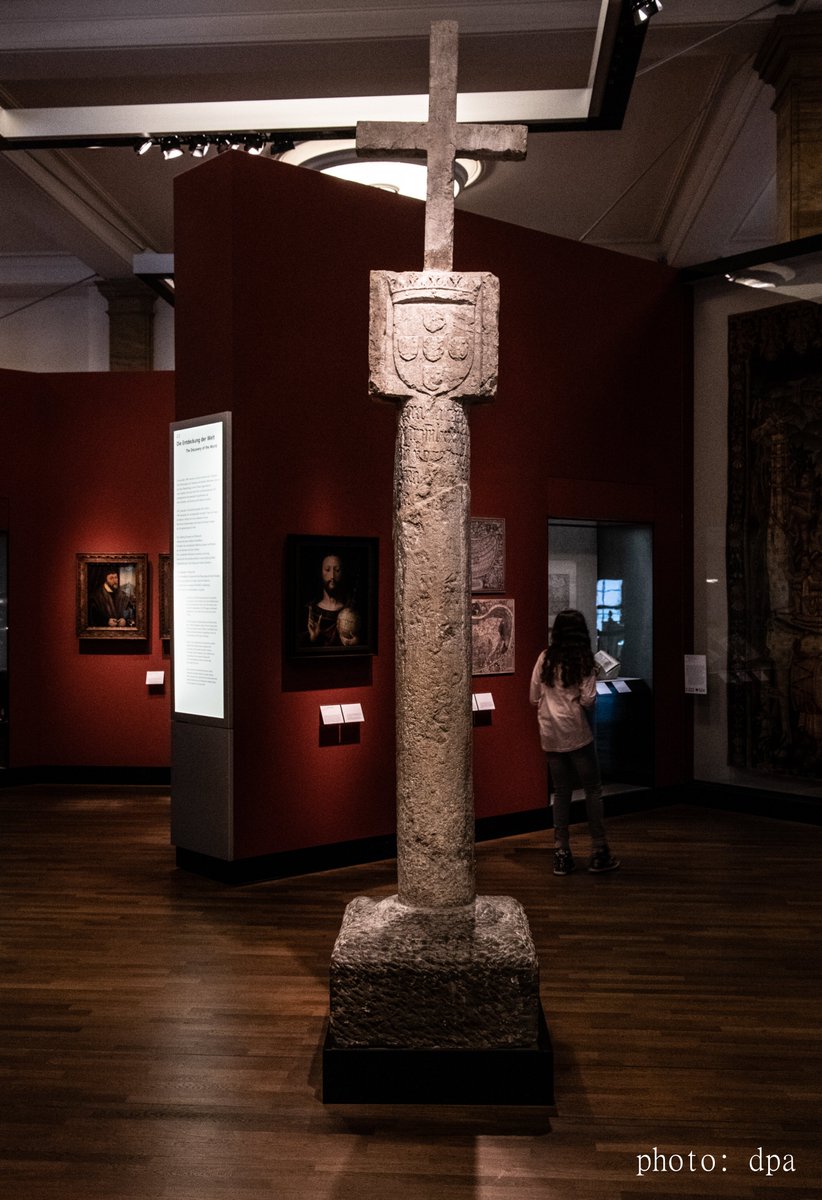Namibia will, in the coming months, get back one of the most valuable cultural artefacts in the 15th century, the Stone Cross of Cape Cross that was taken by the Germans during colonial rule. The German Historical Museum announced Friday that it will return the art piece by August, two years after Namibian officials had requested its return.
The Stone Cross is a Portuguese navigation landmark placed on the southwest African coastline in 1486, but the cross was taken and moved to Europe when the area came under German colonial rule in the 1890s.
Germany’s State Secretary for Culture and Media, Monika Grütters said that the decision to return the Stone Cross shows her country’s desire to face up to the moral responsibility of its colonial past.
“The rapprochement with Namibia is clearly, and visibly taking place,” said Grütters at a ceremony, adding that the restitution is a “clear signal that we want words to be followed by deeds.”
Namibia’s Ambassador to Germany, Andreas Guibeb sees the return as “significant progress”.

The 3.5m (11ft) Stone Cross was originally erected on the coastline of present-day Namibia in 1486 by explorer, Diogo Cao, to signify Portuguese territorial claims, as well as, serve as a navigational marker, reports DW.
The Stone Cross, emblazoned with the Portuguese coat of arms and having inscriptions in Portuguese and Latin, was so popular that it featured on maps at the time.
In 1893, however, a German seafarer, Gottlieb Becker, found the artefact and ordered it removed. At the time, Namibia was a German colony. Becker took the art piece to Germany, where it moved from Wilhelmshaven to Berlin.
The object would later be used by Kaiser Wilhelm II for propaganda purposes before entering the collection of East Germany’s Museum of German History in 1953, and subsequently the German Historical Museum after reunification, the DW report said.
Since 2006, the Stone Cross has been part of the museum’s permanent exhibition. The museum has, so far, admitted the “outstanding significance which an artifact like this pillar has to the people of Namibia and the special contribution it can make on site in the future to understanding Namibia’s history.”
Germany has, in recent years, been trying to come to terms with its colonial past. In 2004, it acknowledged the killings of tens of thousands of Namibians, mainly from the Herero and Nama tribes, between 1904 and 1908.
It, however, rejected calls for financial compensation for the victims and their descendants. In 2015, the German government declared the events as a “genocide” and “part of a race war.”
Apart from suffering from the negative consequences of colonialism, Africans have had to negotiate for the return of valuable historical cultural artefacts that were smuggled out of their countries.
These priceless monuments, which symbolize African identity are currently scattered across the world, with an impressive number in British and French Museums.
Many African countries have called for the return of these treasures but are yet to receive any positive response from these western countries, which are making huge sums of money from these objects, with some even insisting that they were obtained legally.
Last April, Ethiopians boiled with anger when a museum in the UK, Victoria and Albert Museum, said it will offer to loan them their own treasures that were looted by British troops at the Battle of Maqdala in 1868.










